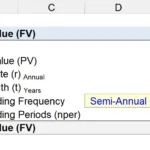Transporting oversized or overweight loads is a crucial aspect of the logistics and trucking industry. For businesses and drivers operating in Mississippi, it’s essential to be familiar with the state’s specific oversize load regulations to ensure compliance and avoid hefty fines. Whether you’re moving large machinery, construction materials, or other heavy equipment, understanding Mississippi oversize regulations can streamline your process and keep your cargo moving safely and legally. This blog will outline what you need to know about Mississippi’s oversized load regulations, including permits, legal limits, safety requirements, and penalties for non-compliance.
Understanding Oversize Loads
an oversized load is any vehicle or combination of vehicles that exceeds the state’s established legal size and weight limits. These limits include:
- Width: 8 feet, 6 inches (102 inches)
- Height: 13 feet, 6 inches
- Length: 53 feet for a single trailer or 99 feet for a tractor-trailer combination
- Weight: 80,000 pounds gross vehicle weight (GVW) on interstate highways
Suppose your load exceeds any of these dimensions. In that case, you must obtain a Mississippi overweight permit from the Mississippi Department of Transportation (MDOT).
Permitting Process for Oversize Loads in Mississippi
There are different types of permits based on the load, route, and frequency of travel.
- Single-Trip Permit:
It is a permit for one trip with an oversized load along a specified route within Mississippi. Single-trip permits are typically valid for five days.
- Annual Permit:
For companies that regularly transport oversized loads, an annual permit allows unlimited trips for specified load types and sizes during the year. However, some restrictions may apply to specific routes. It would be best to look for keywords like “trucking companies near me” to discuss your needs and obtain the necessary permits.
- Superload Permit:
A superload permit is required for loads significantly exceeding the state’s size or weight limits. These loads typically need a more detailed review, including route analysis and potential police escorts for safe passage.
Application Process for Permits
The process is straightforward to obtain a Mississippi overweight permit. MDOT offers an online portal where drivers or companies can submit applications, pay fees, and receive permits electronically. You must provide detailed information about the vehicle, load dimensions, weight, and planned travel route.
Permit fees charged by trucking companies near you can vary depending on several factors. For example, single-trip permits are generally more affordable. In contrast, additional administrative processing can make superload permits significantly more expensive.
Safety and Escort Vehicle Requirements
Safety is a top priority when moving oversized loads in Mississippi. The state has implemented Mississippi oversize regulations for safety. These include:
Flagging and Marking:
Any load that extends more than 4 feet beyond the rear of the vehicle must be marked with red flags during the day and red lights or reflectors at night.
Escort Vehicles:
Depending on the size of the load, escort vehicles, also known as pilot cars, may be required. In Mississippi, a front and rear escort vehicle is generally required for loads over 12 feet wide, 95 feet long, or 15 feet high. Superloads may require additional escorts or even law enforcement assistance.
Time Restrictions:
Oversized loads are typically restricted to daytime travel, extending from 30 minutes before sunrise to 30 minutes after sunset. They cannot travel on Sundays, holidays, or during inclement weather conditions such as heavy rain, fog, or snow.
Penalties for Non-Compliance
Failure to comply with oversize regulations can result in severe penalties. These may include fines, suspension of permits, and, in extreme cases, vehicle impoundment.
Conclusion
By staying informed about Mississippi oversize regulations, you can ensure your operations run smoothly and legally while minimizing risks and penalties. Always consult MDOT or your logistics expert to verify the latest rules and requirements before hitting the road with an oversized load.










